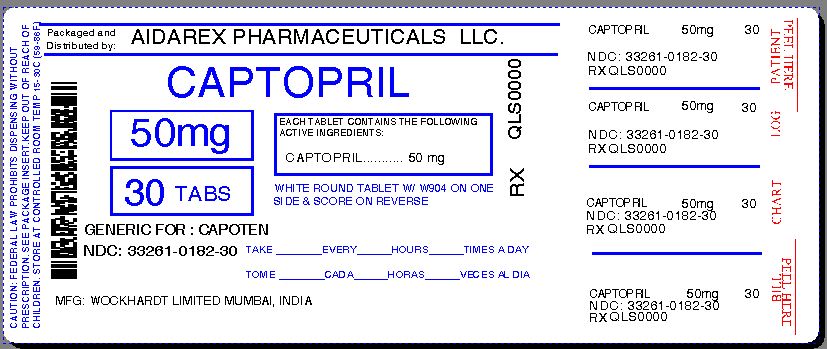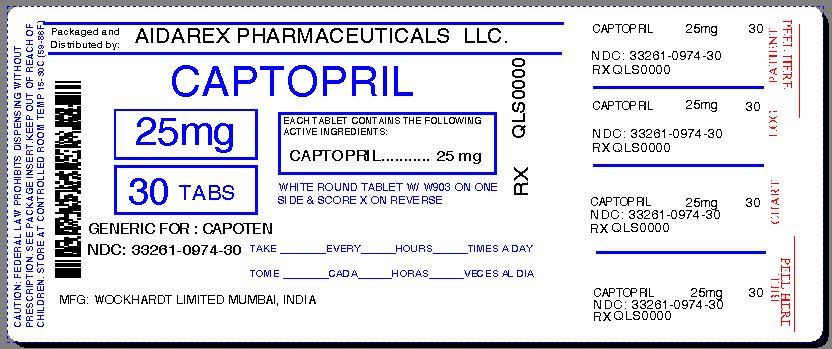Most health expert recommend six month of exclusive breastfeeding but statics suggest that numbers are not good, almost 95% mothers start breastfeeding but this number drops to 40% in first three month and further it drops to 15% till fifth month. Sometime its due to need of medication usage. Because of these statics its important to provide good information on safety of drugs in breastfeeding so that it can be improved when possible. In this FAQ sheet we will discuss about exposure to Captopril | Captorpil Tablet while breastfeeding. We will also discuss about common side effects and warnings associated with Captopril | Captorpil Tablet.
What is Captopril | Captorpil Tablet used for?
Hypertension: Captopril tablets, USP are indicated for the treatment of hypertension. In using captopril, consideration should be given to the risk of neutropenia/ agranulocytosis (see WARNINGS). Captopril may be used as initial therapy for patients with normal renal function, in whom the risk is relatively low. In patients with impaired renal function, particularly those with collagen vascular disease, captopril should be reserved for hypertensives who have either developed unacceptable side effects on other drugs, or have failed to respond satisfactorily to drug combinations. Captopril is effective alone and in combination with other antihypertensive agents, especially thiazide-type diuretics. The blood pressure lowering effects of captopril and thiazides are approximately additive. Heart Failure: Captopril tablets are indicated in the treatment of congestive heart failure usually in combination with diuretics and digitalis. The beneficial effect of captopril in heart failure does not require the presence of digitalis, however, most controlled clinical trial experience with captopril has been in patients receiving digitalis, as well as diuretic treatment. Left Ventricular Dysfunction After Myocardial Infarction: Captopril tablets are indicated to improve survival following myocardial infarction in clinically stable patients with left ventricular dysfunction manifested as an ejection fraction ≤40% and to reduce the incidence of overt heart failure and subsequent hospitalizations for congestive heart failure in these patients. Diabetic Nephropathy: Captopril tablets are indicated for the treatment of diabetic nephropathy (proteinuria > 500 mg/day) in patients with type I insulin-dependent diabetes mellitus and retinopathy. Captopril tablets decreases the rate of progression of renal insufficiency and development of serious adverse clinical outcomes (death or need for renal transplantation or dialysis). In considering use of captopril tablets, it should be noted that in controlled trials ACE inhibitors have an effect on blood pressure that is less in black patients than in non-blacks. In addition, ACE inhibitors (for which adequate data are available) cause a higher rate of angioedema in black than in non-black patients (see WARNINGS: Head and Neck Angioedema and Intestinal Angioedema).
I am breastfeeding mother and I am using Captopril | Captorpil Tablet. Can it have any bad effect on my kid? Shall I search for better alternative?
As per our analysis Captopril | Captorpil Tablet contains only one ingredient and that is Captopril. We have analyzed Captopril and it seems to be safe to use Captopril while breastfeeding, that means usage of Captopril | Captorpil Tablet shall be safe while breastfeeding. Below you can check more details of Captopril usage in breastfeeding. We recommend you to go through provided detailed analysis as below take decision accordingly.
Statement of Manufacturer/Labeler about breastfeeding usage
Nursing Mothers Concentrations of captopril in human milk are approximately one percent of those in maternal blood. Because of the potential for serious adverse reactions in nursing infants from captopril, a decision should be made whether to discontinue nursing or to discontinue the drug, taking into account the importance of captopril tablet to the mother. (See PRECAUTIONS: Pediatric Use.)
Captopril | Captorpil Tablet Breastfeeding Analsys
SafeCAS Number: 62571-86-2
Excreted into breast milk in non-significant amount without harm effects observed among breastfed infants of mothers treated with Captopril. The American Academy of Pediatrics rates it as usually compatible with Breastfeeding.
Captopril | Captorpil Tablet Breastfeeding Analsys - 2
CAS Number: 62571-86-2
Because of the low levels of captopril in breastmilk, amounts ingested by the infant are small and would not be expected to cause any adverse effects in breastfed infants.

What should I do if already breastfed my kid after using Captopril | Captorpil Tablet?
Captopril | Captorpil Tablet is safe in breastfeeding and should not create any health problem for your baby but in case you feel any health issue associated with Captopril | Captorpil Tablet you should contact your doctor or health care provider. Be it pregnancy or lactation you shall keep your doctor informed.
I am nursing mother and my doctor has suggested me to use Captopril | Captorpil Tablet, is it safe?
Usage of Captopril | Captorpil Tablet is safe for nursing mothers and baby, No worries.
If I am using Captopril | Captorpil Tablet, will my baby need extra monitoring?
No
Who can I talk to if I have questions about usage of Captopril | Captorpil Tablet in breastfeeding?
US
National Womens Health and Breastfeeding Helpline: 800-994-9662 (TDD 888-220-5446) 9 a.m. and 6 p.m. ET, Monday through Friday
UK
National Breastfeeding Helpline: 0300-100-0212 9.30am to 9.30pm, daily
Association of Breastfeeding Mothers: 0300-330-5453
La Leche League: 0345-120-2918
The Breastfeeding Network supporter line in Bengali and Sylheti: 0300-456-2421
National Childbirth Trust (NCT): 0300-330-0700
Australia
National Breastfeeding Helpline: 1800-686-268 24 hours a day, 7 days a week
Canada
Telehealth Ontario for breastfeeding: 1-866-797-0000 24 hours a day, 7 days a week



